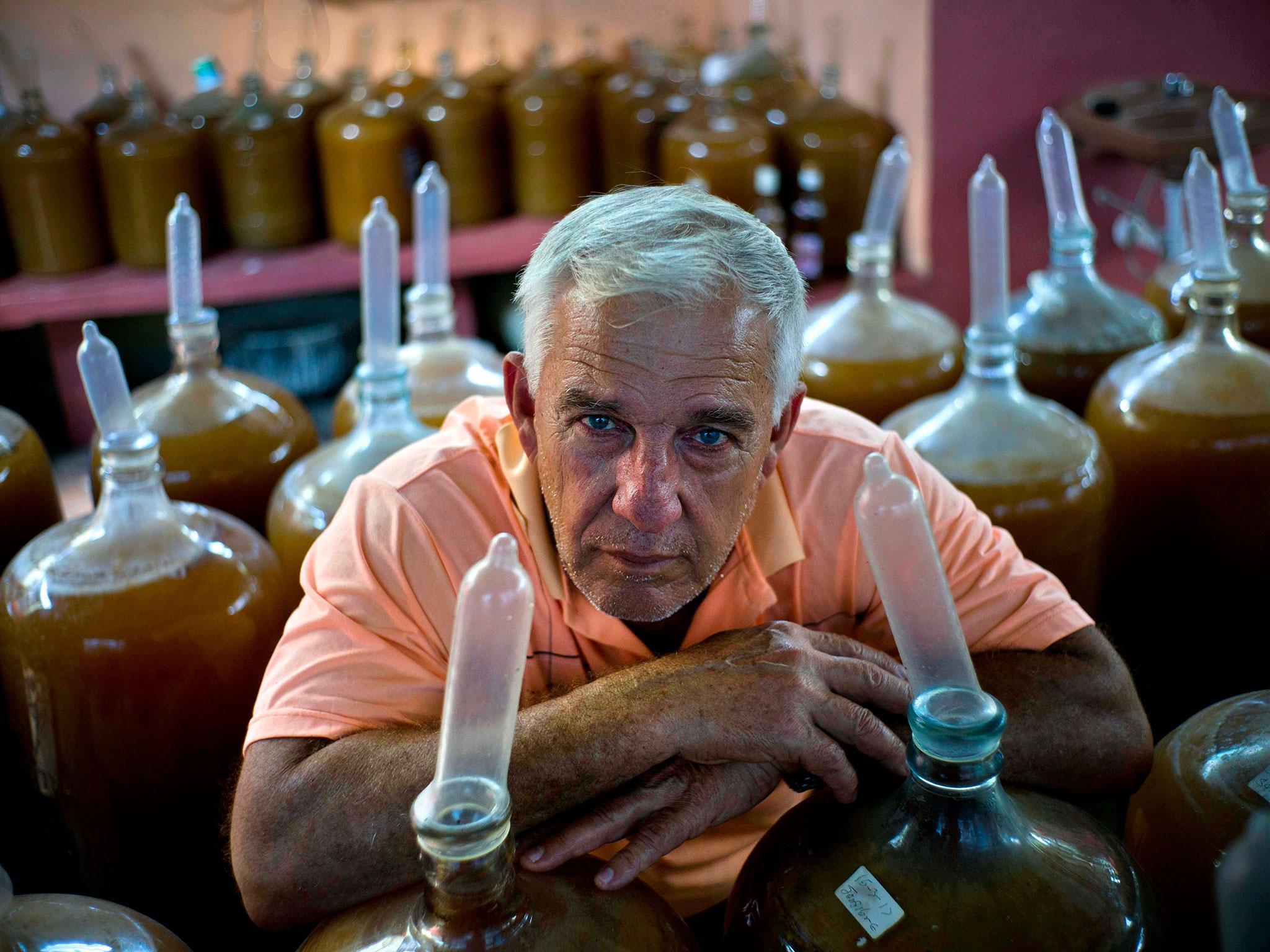Cuban family winery uses condoms during fermentation process
Thousands of basic household items are inaccessible to Cubans meaning that sometimes a little creativity is required to get the job done

A family wine business in Cuba is thriving thanks in part to an unconventional item being added into the fermentation process – condoms.
As a result of the US trade embargo and other inefficiencies of Cuba's economy, thousands of basic household items are inaccessible to Cubans meaning that sometimes a little creativity is required to get the job done.
At El Canal, a winery in Havana, Orestes Estevez and his family fill glass jugs with grapes, ginger and hibiscus, before securing a condom over each glass jug, according to AP.
The condoms, slowly inflate as the fruity mix ferments and produces gases. Once the condom collapses, Mr Estevez knows the fermentation is complete and the wine is ready for bottling.
The 65-year-old has been making wine in Cuba for decades, and legally opened for business in 2000. Together with his wife, son and assistant he reportedly tends to 300 jugs each with a capacity of 20 litres.
“Putting a condom on a bottle is just like with a man,” Mr Estevez told AP. “It stands up, the wine is ready, and then the process is completed.” Once the wine is bottled, Mr Estevez sells the wine to homes and restaurants.
It takes between a month and 45 days to produce a jar of wine at El Canal and today Mr Estevez sells an average of 50 bottles a day, making wine made from Cuban grapes but also tropical fruits such as guava and vegetables such as watercress and beets.
The wine retails for 10 Cuban pesos a bottle, about 40 US cents, so Mr Estevez’s product is a cheap alternative to imported wine which sells for at least half of the average $25 monthly Cuban paycheck.
Angel Garcia, a 43-year-old state auditor, said he used to buy homemade wine of dubious quality, but has now switched to buying from Mr Estevez’s winery.
“I like coming here a lot,” Mr Garcia told AP.
“I earn $16 a month and I'm not going to spend it buying wine from the store.”
Subscribe to Independent Premium to bookmark this article
Want to bookmark your favourite articles and stories to read or reference later? Start your Independent Premium subscription today.

Join our commenting forum
Join thought-provoking conversations, follow other Independent readers and see their replies